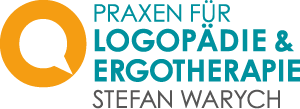Ergotherapy
The ability to act in everyday life and carry out meaningful activities ensure social participation and have a major influence on our quality of life.
Every person has the right, as far as possible, to be able to carry out an activity that is meaningful to them independently. Independence can be limited or threatened by a developmental delay, a congenital or acquired disability, illness or an accident, and social adaptation skills. We empower you to pursue your goals. We offer you individual advice and therapy options in close coordination with your needs. We have been working for years with medical practices in various disciplines, schools and kindergartens, old people’s and nursing homes as well as residential homes for people with disabilities. This enables interdisciplinary and therapeutically comprehensive work. Since occupational therapy and the quality of our therapeutic work are very important to us, constant training and work according to current guidelines are a matter of course for us. We also offer our therapies in French and English and can also treat you at home.
Trust our expert experience and individual advice and therapy for, among other things:
We also treat children with:
- congenital or acquired disabilities
- Developmental delays
- Deficits in posture and gross motor coordination
- Deficits in attention, concentration, endurance and resilience
- Learning difficulties at school
psycho-social adjustment difficulties
We also treat adults with:
- congenital or acquired physical, mental and psychological disabilities
- Multiple sclerosis
- mental illnesses such as anxiety disorders, burnout or memory disorders
- Tumor diseases
We also offer:
- Early intervention
- ADL training (“Activities of Daily Living”)
- Psychomotor skills
- Measures to improve drive, endurance and resilience
- Coaching to help you cope with everyday life
- Advice in the social environment (in kindergarten, at school, in the home, at work, in a senior care facility)
- Aid advice
- home visits

Lea Laser
State-certified occupational therapist
Technical management

